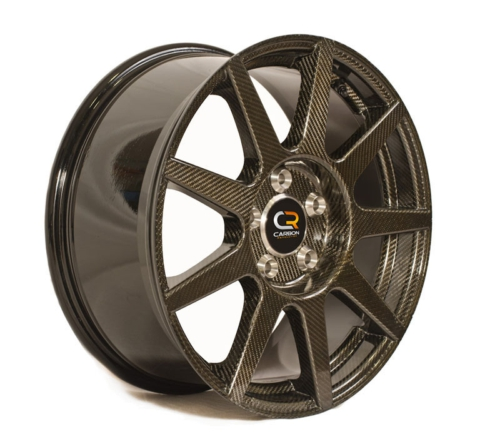
According to Carbon Revolution, a privately owned Australian company, the composite wheels are 40-50% lighter than premium OEM equivalents made from aluminium. The company also reports that the wheels are exceeding OEM standards in laboratory and track tests, demonstrating improvements in acceleration, braking, ride and handling.
Carbon Revolution is in the process of commissioning its first commercial production line. Most of the capacity of this line will be used in further development work, but a small number of wheels will be available to the market over the coming months.
Automated manufacture
Carbon Revolution does not go into details about its manufacturing process but claims that it merges "the rigour of aerospace processes with the efficiency and control of high volume automotive production."
It says full-scale production lines will be fully automated, with human interaction limited to the supervision of machinery and robotic equipment.
The wheels are constructed from continuous fibre, so the strength and stiffness characteristics of carbon fibre are optimised. Carbon Revolution is now working with specialist finite element analysis (FEA) partners to develop new and better approaches to accurately modelling the specific properties of carbon fibres. The group is reported to be achieving computational simulations that are so closely correlated to reality that product development timeframes are being dramatically shortened.
The team has also designed and patented a bolted joint system which is said to solve the challenges of attaching composites to metals under dynamic loading conditions.





